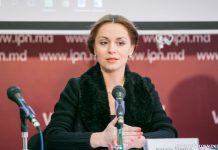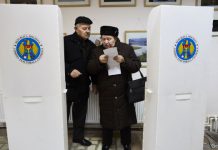On May 27 this year, at the regional reunion of Russian ethnics from Ukraine, Moldova and Belorusia Valeri Kuzmin declared that in regard to raising the Russian language at the level of state language” in the Republic of Moldova „no positive dynamics has been noticed lately” and that the problem deserves an enhanced attention”. As stated by the Ambassador, in the period of aggravation of internal political situation which took place immediately after the elections, a sharpening of interethnic relations has also been noticed. Can an ambassador make a declaration in favor of raising the official status of the language of his state, in this case of the Russian language? Cant these statements be regarded as interference in the affairs of another state? It is true to state that in the post-election period the interethnic relations in our country have eroded even more?
Eugen Revenco, Program Director, Foreign Policy Association (APE): Diplomatic service of any country has the mission to promote the interests of its state abroad. If a foreign ambassador promotes the idea of amending the constitution of the host country, the latter shall be regarded as an attack on its sovereignty and a direct interference in its home affairs. Anyway, following the news published in press, the Ministry of Foreign Affairs should have taken stock of all information and duly act upon these statements with a view of assessing how much they endanger the countrys sovereignty and, eventually, if these suppositions get confirmed, it should take an attitude. In the Republic of Moldova, Russian language has an official status, which is mentioned even in the Constitution. Although it does not bear the title of state language”, it fulfills all these functions along with the Romanian language. All bills and draft Government decisions are written in two languages; debates in Parliament and Government are bilingual; legislation is published in the Official Gazette in two languages; legal hearings are held in one of the two languages. I would be surprised if even after the mass media support during and after the election campaign provided to the ruling party of communists, the authorities of the Russian Federation will still reproach the Government of Moldova for promoting discriminatory policies against Russian ethnics, in particular after signing of the intergovernmental agreement for humanitarian cooperation in February this year, in the midst of the election campaign between Mr. Lavrov, Minister of Foreign Affairs of the Russian Federation and Deputy Prime Minister of Moldova Victor Stepaniuc (at that moment relieved from his post similar to Andrei Stratan, Minister of Foreign Affairs, both candidates of PCRM).”
Mihai Godea, Prime Deputy Chairperson of the Liberal Democratic Party of Moldova: The statement made by Ambassador Kuzmin cannot be disregarded at least for the fact that he is an official representative of a foreign state in our country. The fact that a foreign diplomat demands officialization of the Russian language can be qualified as an unconcealed interference in internal affairs of the Republic of Moldova. Should there be concrete and multiple cases of ethnic and linguistic discrimination of our minority co-nationals, the actions of the Russian ambassador could have been explained. I would like to remind that the Law on the functioning of languages on the territory of the country passed in 1989 is enforced in the Republic of Moldova and it reproduces the criteria and principles of the European Charter of Minority and Regional languages. In the localities compactly inhabited by Russian-speaking population, Russian language is used in administration and education facilities. All official documents of the central government institutions are issued in both Russian and Romanian. Even in the Parliament of Moldova, all sessions are simultaneously translated into the Russian language. Development of the Russian language in our country is guaranteed by the Constitution as well. In this regard, the legislation of the Republic of Moldova is adequate and complies with the European requirements in this area. Even if the aim is to deteriorate the interethnic relations and here I would like to recall the declaration made by the General Peoples Assembly of Gagauzia in this context, nevertheless I believe that the efforts in this direction are futile. During 18 years of independence, our minority co-nationals have managed to get convinced that they do not have reasons to be worried about the use of Russian language in our society.” […]






